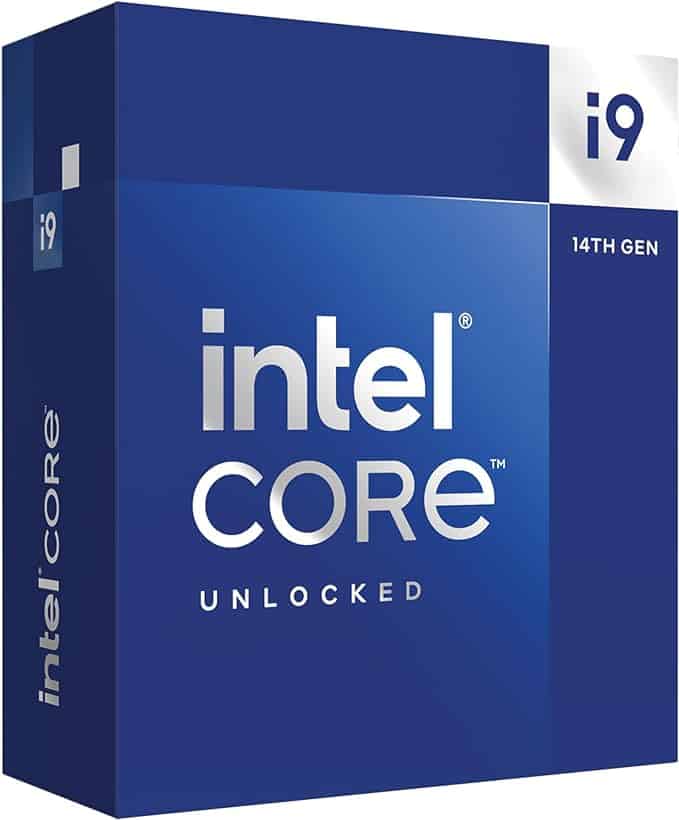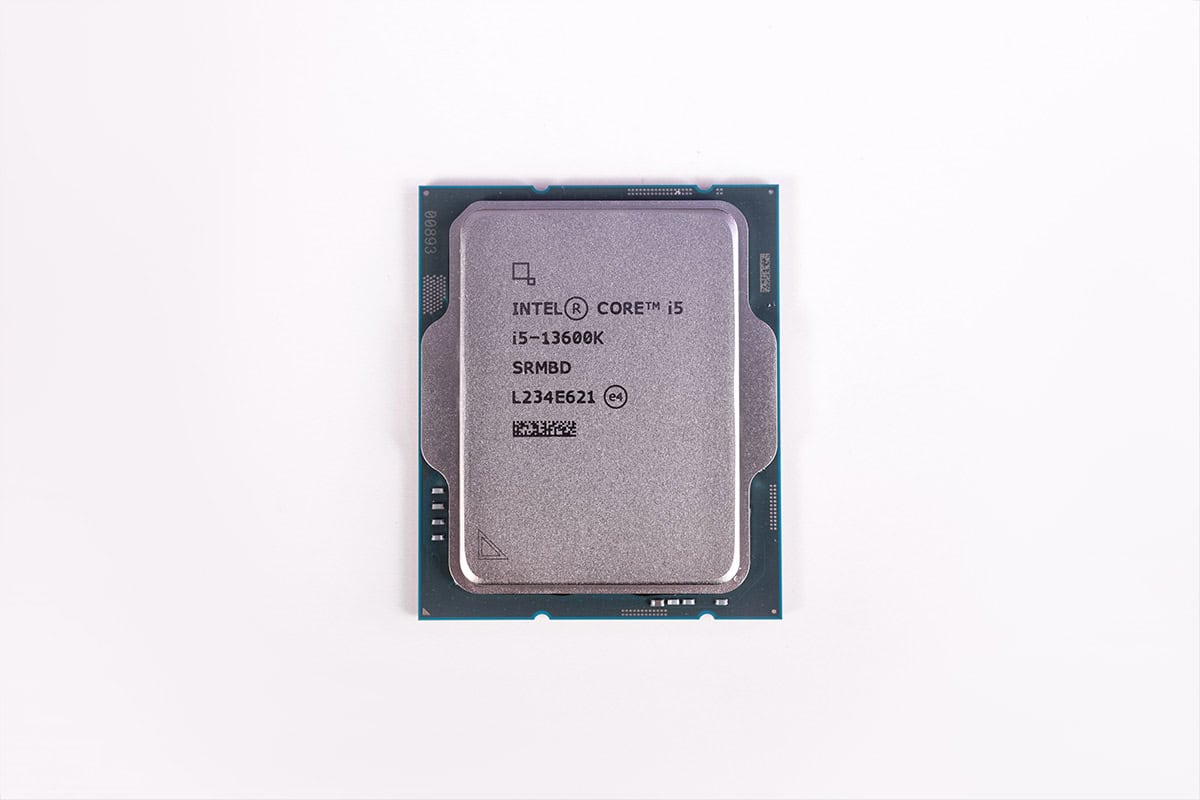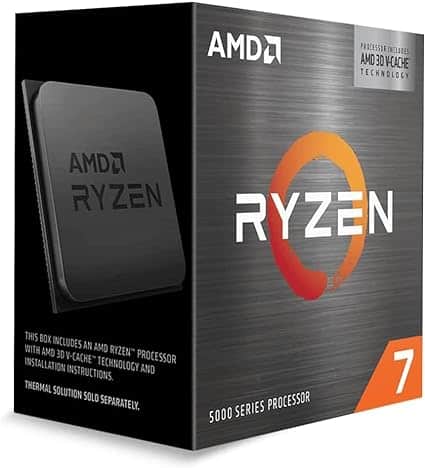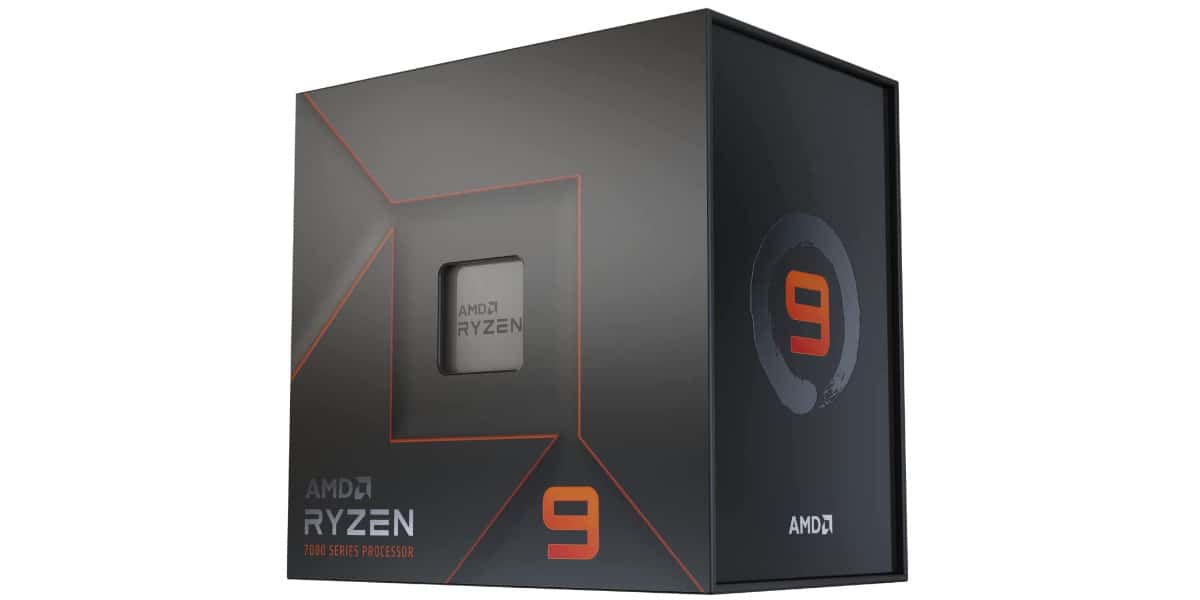Ryzen 7 9700X Vs Ryzen 7 7700X – Will Zen 5 prove more valuable over Zen 4?
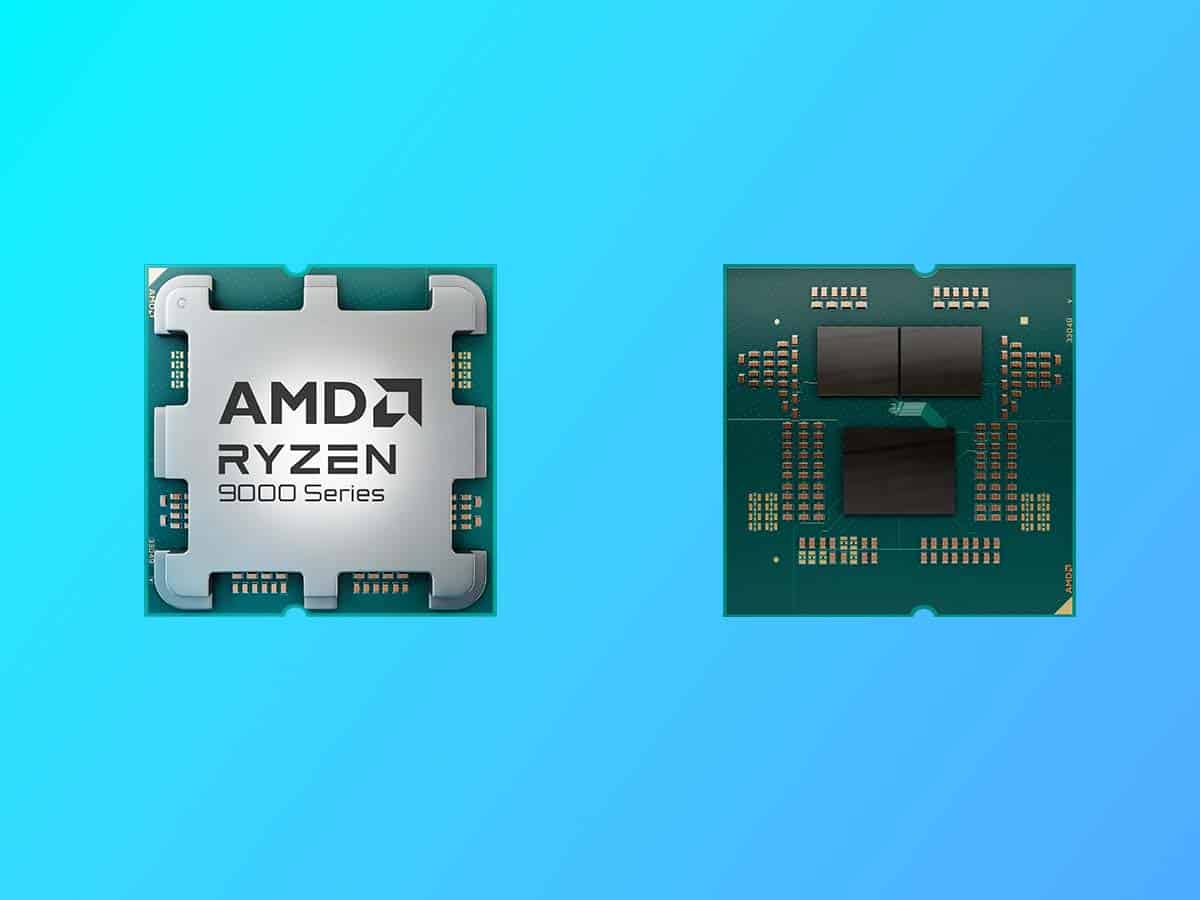
Table of Contents
The Ryzen 7 9700X is available for purchase on Amazon, and you can read our 9700X review to see what we think of the processor. However, here we have something special: the Ryzen 7 vs. Ryzen 7 showdown that will answer the ultimate question: Will Zen 5 be worth the upgrade?
These CPUs look the same on paper, feel the same in your hand, and probably smell the same, but underneath that whacky IHS that allows all AM5 CPUs to retain AM4 cooler compatibility, there’s something afoot. Did someone say an IPC increase of 16%? AMD did, and we expect nothing less from Zen 5. But will that be enough to make us want to pay more for the 9000 series, or is it best to save some money with Ryzen 7000?
Prime Day is finally here! Find all the biggest tech and PC deals below.
- Sapphire 11348-03-20G Pulse AMD Radeon™ RX 9070 XT Was $779 Now $739
- AMD Ryzen 7 7800X3D 8-Core, 16-Thread Desktop Processor Was $449 Now $341
- ASUS RTX™ 5060 OC Edition Graphics Card Was $379 Now $339
- LG 77-Inch Class OLED evo AI 4K C5 Series Smart TV Was $3,696 Now $2,796
- Intel® Core™ i7-14700K New Gaming Desktop Was $320.99 Now $274
- Lexar 2TB NM1090 w/HeatSink SSD PCIe Gen5x4 NVMe M.2 Was $281.97 Now $214.98
- Apple Watch Series 10 GPS + Cellular 42mm case Smartwatch Was $499.99 Now $379.99
- ASUS ROG Strix G16 (2025) 16" FHD, RTX 5060 gaming laptop Was $1,499.99 Now $1,274.99
- Apple iPad mini (A17 Pro): Apple Intelligence Was $499.99 Now $379.99
*Prices and savings subject to change. Click through to get the current prices.
If news of AMD confirming the Ryzen 9000 series release date has gotten you in a pre-ordering mood, then you can check out our where to buy page on the 9700X. There we have listed all the retailers we expect to be accepting pre-orders just before the CPUs drop. Keep an eye out if you want to secure one for yourself on day one.
AMD Ryzen 7 9700X
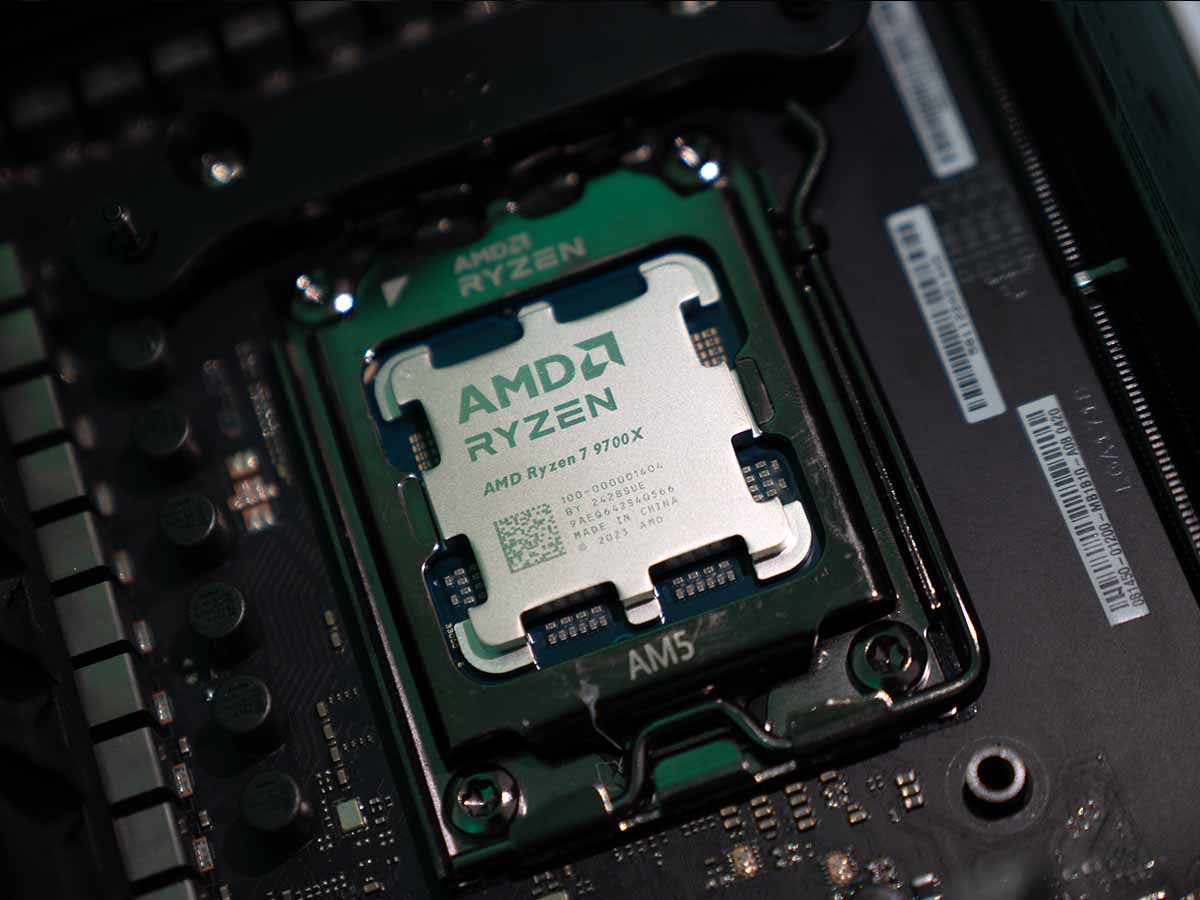
Cores
8
Threads
16
Boost clock speed
5.5 GHz
Base clock speed
3.8 GHz
L3 Cache
32 MB
TDP
65 W
Platform
AMD Socket AM5
Shop on Amazon
CHECK PRICEAMD Ryzen 7 7700X
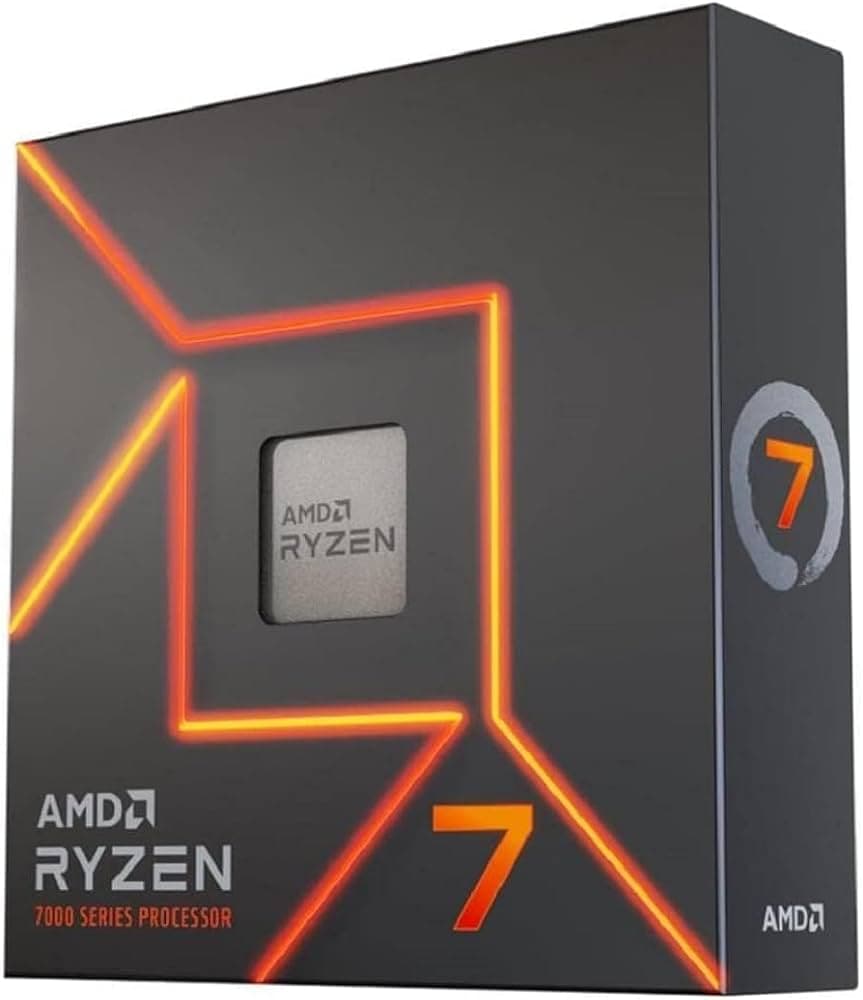
Cores
8
Threads
16
Boost clock speed
5.4 GHz
Base clock speed
4.5 GHz
L3 Cache
32 MB
TDP
105W
Platform
AMD Socket AM5
Shop on Amazon
CHECK PRICESpecifications
On paper, these CPUs look pretty similar, with the same number of cores, threads, and cache, but different in many ways. Some of these are obvious, with the 9700X taking a demanding lead in power efficiency, but coming up a little short, in the base clock speeds. An interesting comparison for sure.
| Specification | Ryzen 7 9700X | Ryzen 9 7900X |
|---|---|---|
| Cores | 8 | 8 |
| Threads | 16 | 16 |
| Base Clock | 3.8GHz | 4.5GHz |
| Boost Clock | up to 5.5GHz | up to 5.4GHz |
| L3 Cache | 32MB (shared) | 32MB (shared) |
| TDP | 65W | 105W |
| PPT | 88W | 142W |
| Socket | AM5 | AM5 |
| Core architecture | Zen 5 | Zen 4 |
The biggest and most advantageous buff that the Ryzen 9000 series has, is the core generation upgrade from Zen 4 to Zen 5, that’s what’s going to give it an edge in pretty much all workloads that you can think of. When it comes to CPU comparisons, especially generational comparisons, IPC is king.

Cores and threads
The cores and thread count are actually the same, as you can see by our specification chart above, each of the CPUs has 8 cores to play with. Because AMD likes to multi-thread all of its CPU cores, and not be confusing like Intel, we get 16 threads each, how wonderful! The difference comes from the generational improvements the Zen 5 cores have undergone in the 9700X.
IPC is king, as we mentioned, what that is is the number of instructions a CPU can execute per cycle. because the Zen 5 cores a built upon a smaller manufacturing process than the Zen 4 cores (4nm over 5nm) there are more transistors present in the Zen 5 cores; because the transistors are smaller. This leads to the Zen 5 cores being able to execute more instructions per cycle, and in normal people’s terms, it’s a more powerful CPU core.
Even though both processors possess the same number of cores, the cores in the 9700X are stronger.
Clock speed
As it stands, it may look like the 7700X has a bit of an edge in terms of base core speed, but the 9700X just beats it when it comes around to boosting speeds, but again we need to consider IPC. Because the Zen 5 cores in the 9700X ar stronger, they can execute more instructions per cycle and that can make up for the lack of core speed. That’s why it’s so important to consider the generation when looking into CPU selections.
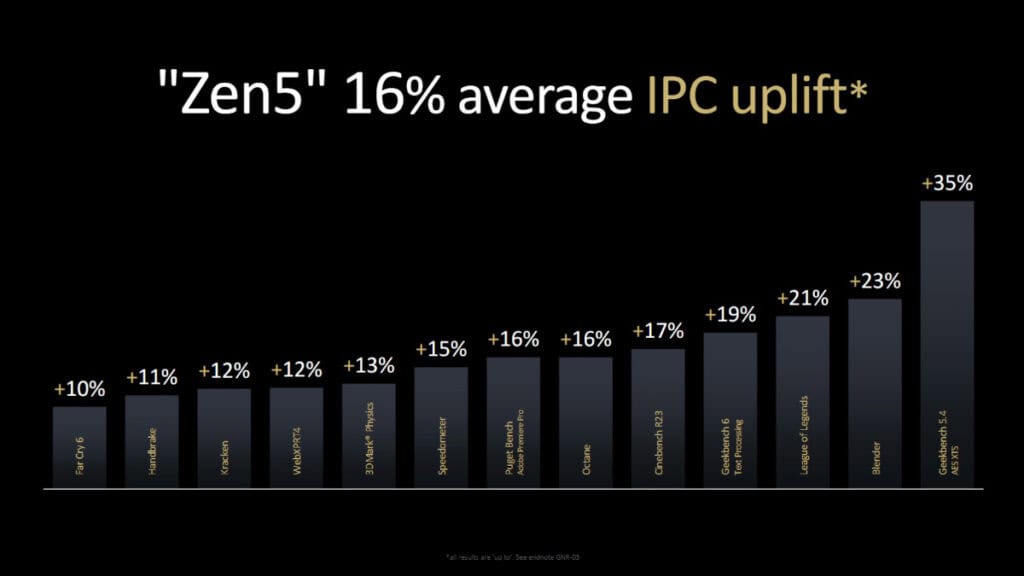
Even if the 7900X beat the 9700X in core speed by a few hundred MHz on both fronts, it’s still unlikely that the 7700X would outperform it. With that being said, CPU performance isn’t linear, a CPU on the same generation with double the cores is never twice as powerful. So we can’t really tell how suped up the 7700X would need to be to be on par with the 9700X just yet.
Cache
One thing we do know from AMD press material is that the cache has gone through a makeover in the 9000 series processors. And this improvement comes in the form of double the bandwidth. We know this because the 9700X can beat the Ryzen 7 5800X3D in some gaming workloads, something the 7700X failed to do. So I guess that answers the “which is better” question on the caching front.
Both of these CPUs have the same amount of L3 cache, which is shared between all CPU cores for easy and fast access to information. Getting instructions from the memory during calculations takes far too long, so we have cache.
TDP and PPT
The sheer amount of increased efficiency that Zen 5 cores operate against Zen 4 cores is extraordinary. It’s no doubt that this CPU performs better than the 7700X, or else why make one?, and it does so with a 40W lower TDP. This is the maximum amount of thermal energy that the CPU will produce under normal operating conditions, this is not a hard limit, it may increase if you decide to push the CPU hard.
PPT, on the other hand, is a hard limit, and it is the amount of power that the motherboard allows through the voltage rails into the CPU. The Ryzen 9000 series CPU is more efficient in both regards.
9700X and 7700X Price
Of course, we already know that we can pick up a Ryzen 7 7700X for around $240, a very reasonable price, and now we know the price of the 9700X as well. The Ryzen 7 9700X comes with a price tag of $359, which is cheaper than the 7700X, which launched with an MSRP of $399.
Graphical capabilities
Both of the CPUs we’re comparing today have graphical capabilities, as AMD made it the norm from the 7000 series for AMD CPUs to have an iGPU. WePC seemed very impressed with the 2 CU RDNA 2-based unit in the 7000 series, as they saw it running CS:GO at 130FPS. However, we have something a little more special in the 9700X.
The iGPU in the 9700X still has 2 compute units, but the architecture is based on RDNA 3, a vastly superior graphics architecture capable of great things, especially on the FSR front. This iGPU runs in a dynamic range from 400MHz to 2,200Mhz, and we can’t wait to see what it can do against the 7000 series. Maye, we’ll be gaming just on a CPU? Who knows.
How do these CPUs compare generationally?
We’ve gone over the improvements AMD has made to its Zen 5 architecture and all the razzle-dazzle it brings over Zen 4, but let’s talk platform. The Ryzen 7 9700X and the 7700X both belong to the same socket, AM4, which means they belong to the same platform.

That means that you don’t have to make any sacrifices as to which platform you want to base your system on, unlike AM4 to AM5. You still have access to all the latest hardware and features no matter the CPU you choose. And with the 800 series motherboard release looming, you can rest assured knowing you don’t have to sacrifice anything.
Alternatives to the 9700X and the 7900X
We have some alternatives lined up that are sure to take your interest if the CPUs at hand don’t tickle your fancy. We have a selection from Team Red and Team Blue in the hopes that you’ll find something you like. If we’re talking the best of the best, might as well go for the 14900K, just bear n mind you will need to change the platform for that. Or, if you prefer, a little gaming number from AMD in the form of the 5800X3D.
-
Intel Core i9-14900K
- Cores: 24 (8P-16E)
- Threads: 32
- Boost clock speed : P-Core 5.8GHz / E-Core 4.4GHz
- Base clock speed: P-Core 3.2GHz / E-Core 2.4GHz
- L3 Cache: 36 MB
- TDP: 253W
-
Intel Core i5-13600K
- Cores: 14 (6P-8E)
- Threads: 20
- Boost speed : P-Core 5.1GHz / E-Core 3.5GHz
- Base speed: P-Core 3.5GHz / E-Core 2.6GHz
- L3 Cache: 24MB
- TDP: 181W
-
AMD Ryzen 7 5800X3D
- Cores: 8
- Threads: 16
- Boost speed : Up to 4.5 GHz
- Base speed: 3.4 GHz
- L3 Cache: 96 MB
- TDP: 105W
-
AMD Ryzen 9 7900X
- Cores: 12
- Threads : 24
- Boost clock speed: 5.6 GHz
- Base clock speed: 4.7 GHz
- L3 Cache: 64 MB
- TDP: 170 W
Which CPU is best for you?
At the end of the day, the 9700X will take the cake for the sheer raw performance and power efficiency improvements that it holds over the 7700X, all thanks to those magical Zen 5 cores and increased IPC I’ve gushed so much about. if you want a strong and capable processor that can do pretty much any semi-intensive you ask of it, but doesn’t break the bank, the 9700X is a good choice. Especially if you’re power-conscious or you’re looking for a CPU you can pack Into a small PC.
The 7700X is also a fantastic processor, isn’t quite as good on paper, even If you don’t read between the lines at the generational differences. But what it does do well is everything the 9700X does well. If you want a middle-of-the-pack processor, that is capable, cheaper still than the 9700X, and a fair bit worse on power, this is for you. Especially if you don’t care too much about a higher thermal demand and lower power efficiency. It might even drop a little more in price during sales events and after the new CPUs launch.
Just bear in mind, however, that the 7700X won’t perform quite as well as the 9700X, but that’s perfect if you don’t really need all that power.
No matter the CPU you pick, you’re going to be able to take advantage of the latest hardware to date, both of these CPUs will be able to use the 800 series motherboards fresh out of the box. AM5 will be supported well into 2027, so you’re not missing out no matter the path you take.
I asked fellow PC Guide experts, Sebastian and Ussamah, what they thought on the matter. Here’s what they had to say:
The Ryzen 7 9700X is set to take the crown for the best mid-range processor from the 7700X. Both processors run on the AM5 platform, but their architecture sets them apart. Even if CPU process technologies differ by 1 nm, this should make the 9700X a faster and more efficient processor.
In addition, the TDP difference also speaks toward better energy efficiency, as the 9700X consumes 40W less than the 7700X, making it the better option out of the two. However, the price of the 7700X should drop when the 9700X is released, so if you were waiting for an opportunity to jump to the AM5 platform, it should be coming your way soon.
The 7700X is by no means a subpar processor, and if you can get it on sale, it would provide even better value by powering your rig till the next generation of processors drop.
Ussamah Mehmood
The Ryzen 7 sits in the middle in AMD’s lineup so it combines both gaming and productivity prowess but coming in at a bit of a higher cost. But it does offer a great 8 cores to utilize where you need it. As these two now sit on the AM5 platform you also have a greater support network around and can get a lot more performance from there two.
With a generation now between it we wouldn’t expect that much change. But the 9900X crucially does shrink down the transistors thanks to the new TSMC process which gives it a little boost. Whilst also dropping the power usage and makes it a more efficient option. So if the price is fairly similar, is the more obvious choice to go for.
Sebastian Kozlowski




